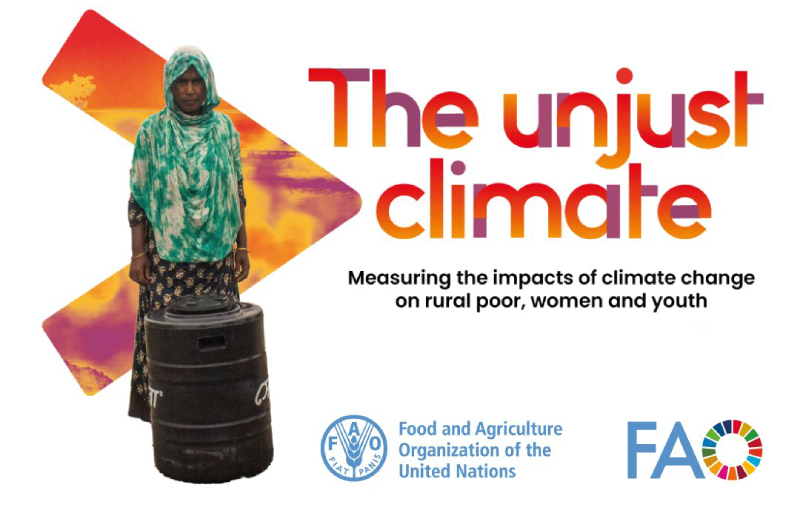FAO: Climate Change Disproportionately Affects Women in Rural Households in Poor Countries

In a recent report released by the Food and Agriculture Organization (FAO) of the United Nations, stark disparities in the impact of climate change on rural households have been highlighted, particularly concerning women’s livelihoods. Titled “The Unjust Climate,” the report sheds light on the challenges faced by women who run farms and rural households in impoverished nations, emphasizing their increased vulnerability to climate-related events and the discrimination they encounter while attempting to adapt.
According to the findings, female-headed rural households suffer a disproportionate loss of income during extreme weather events compared to their male counterparts. On average, these households experience an 8% income reduction during heatwaves and a 3% reduction during floods. This income disparity translates into a per capita reduction of $83 due to heat stress and $35 due to floods annually. Alarmingly, this amounts to staggering losses totaling $37 billion and $16 billion respectively across poor countries each year.
The FAO arrived at these statistics by conducting surveys across 24 poor and middle-income countries, encompassing data from 100,000 rural households. This data was then integrated with 70 years of precipitation and temperature data to provide comprehensive insights into the issue.
Don’t miss out! Subscribe to our newsletter for the latest content straight to your inbox, or register for FREE to gain full access.
What’s particularly concerning is the lack of consideration for the specific vulnerabilities of rural women and youths in government plans aimed at addressing climate change and promoting adaptation strategies. Shockingly, only 6% of the more than 4,000 proposals contained in national climate adaptation plans across the surveyed countries mention women.
The report highlights existing discriminatory practices in many poor countries, where women face challenges in securing land rights and decision-making authority over their work. Furthermore, when attempting to diversify their income sources in response to climate-related agricultural losses, they encounter further obstacles in accessing essential resources such as information, financing, and technology.
In response to these findings, the FAO calls for targeted strategies to address the unique vulnerabilities faced by rural households headed by women. Qu Dongyu, Director-General of the FAO, emphasized the need for urgent action, stating, “Social differences based on locations, wealth, gender, and age have a powerful, yet poorly understood, impact on rural peoples’ vulnerability to the impacts of the climate crisis.”
You can download a summary and full report here.


Responses